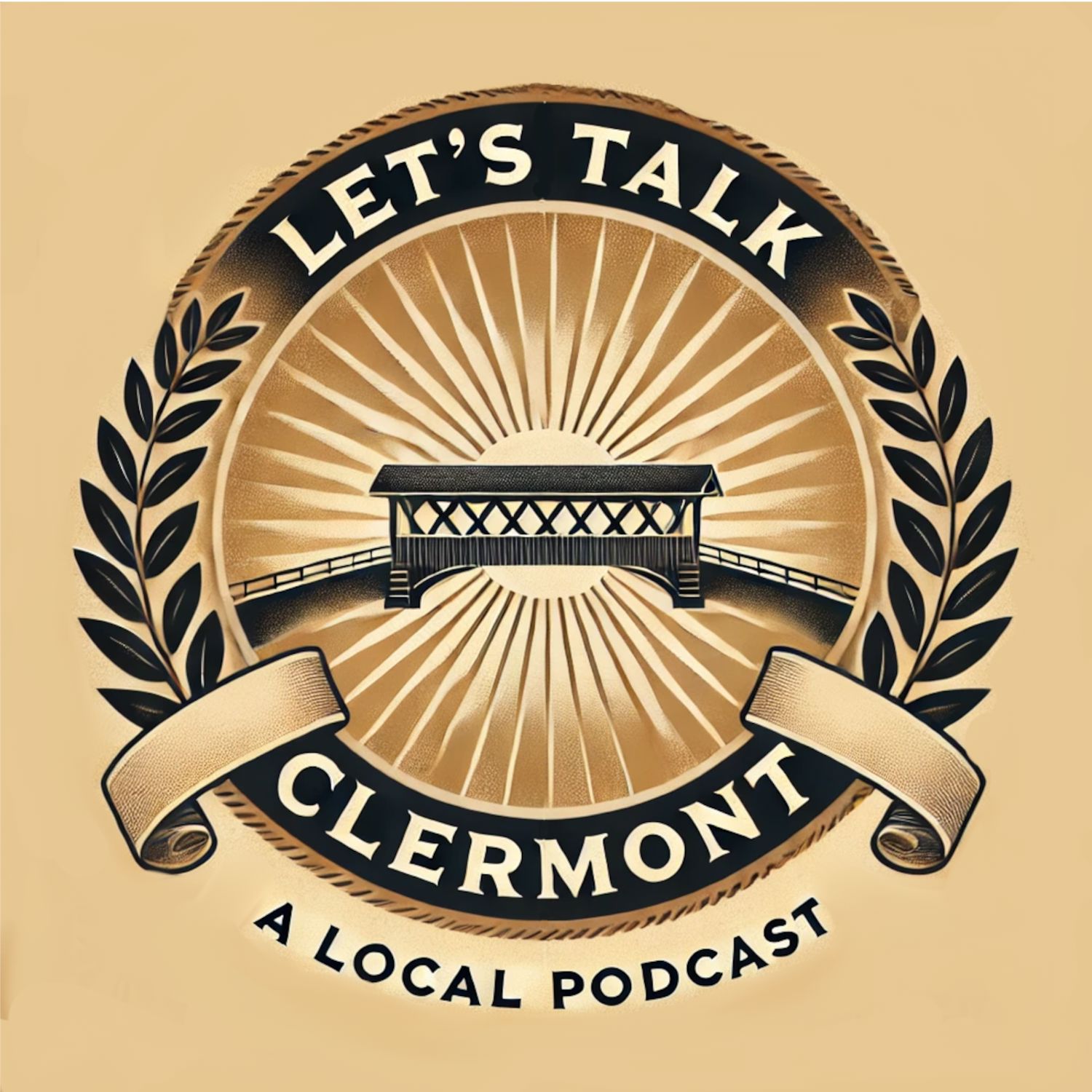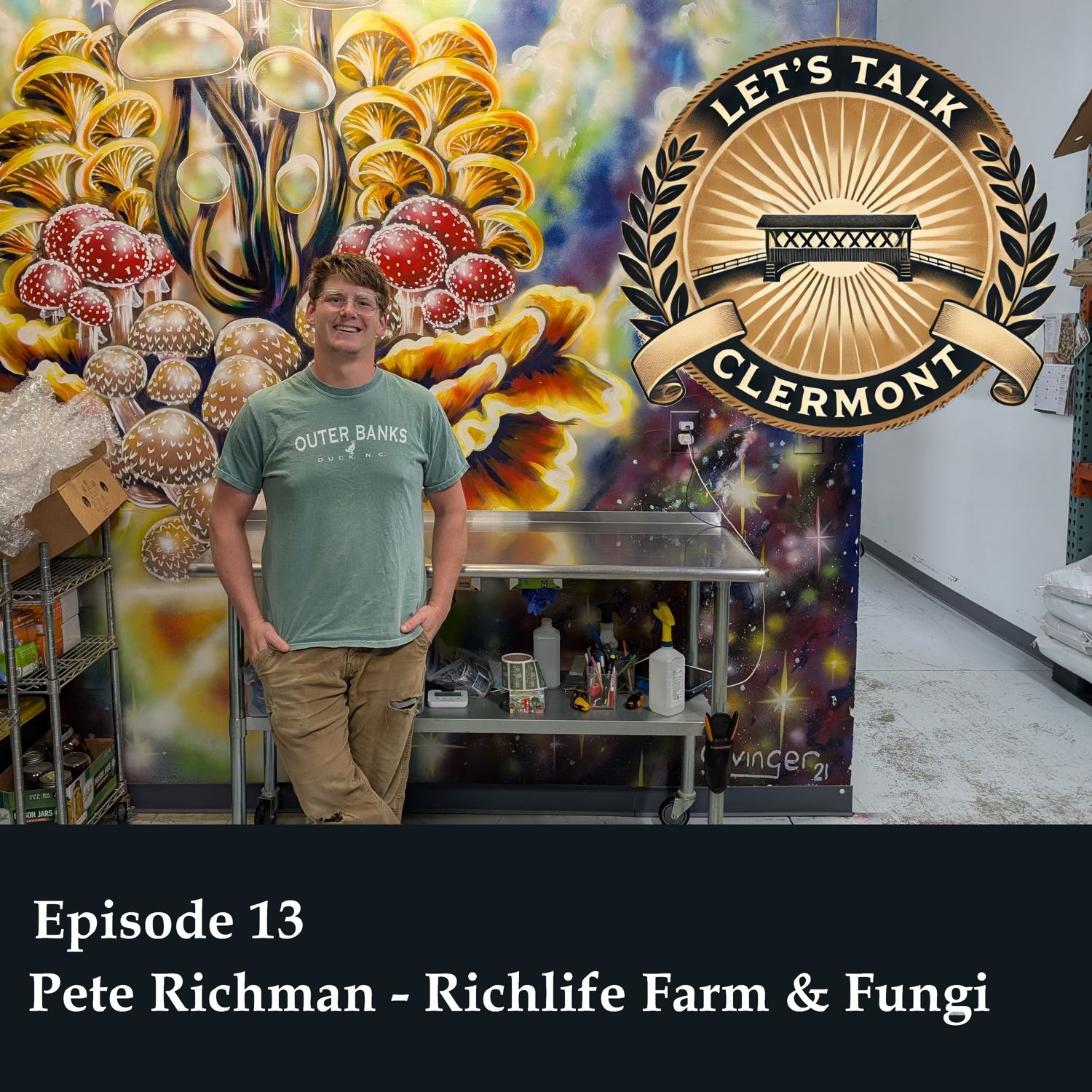Episode 13 of Let's Talk Clermont. We visit Richlife Farm and Fungi in New Richmond to talk with founder and owner Pete Richman about the art and science of indoor mushroom cultivation. Pete shares how he and his wife Emalee turned a homegrown hobby into a full-time farm producing hundreds of pounds of gourmet mushrooms every week.

Let's Talk Clermont
News and Views for Clermont County, Ohio
Listen in your favorite app:
Fountain